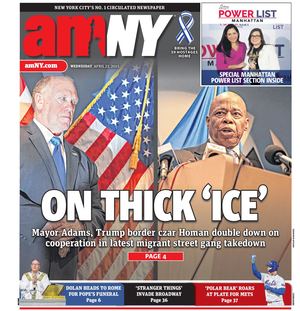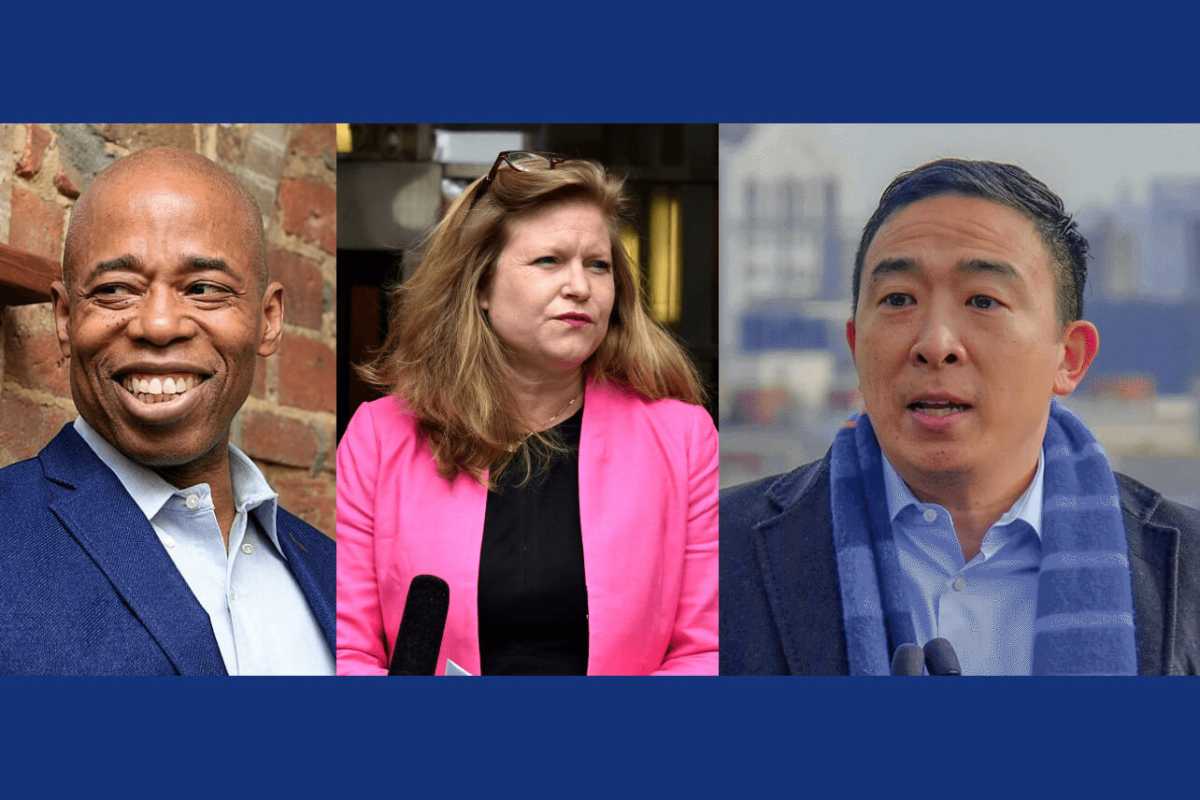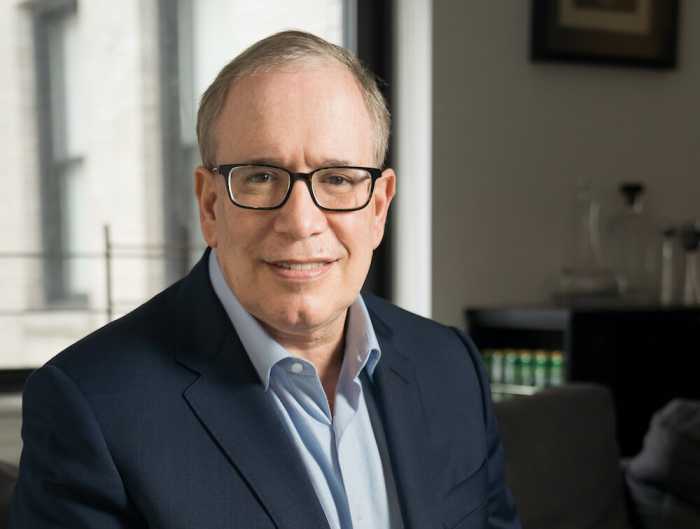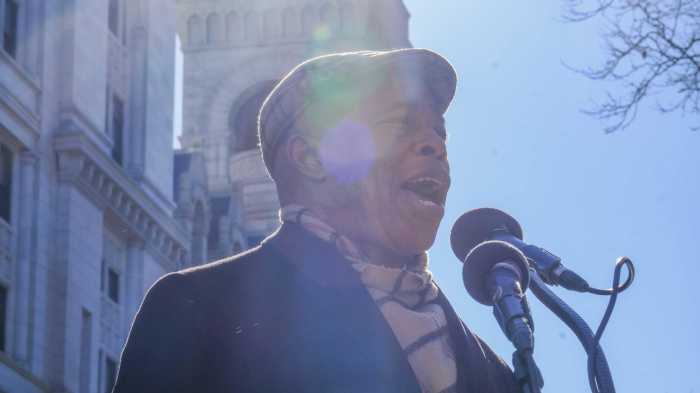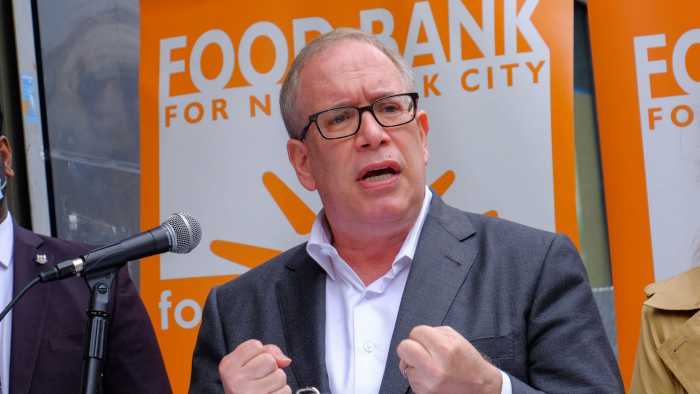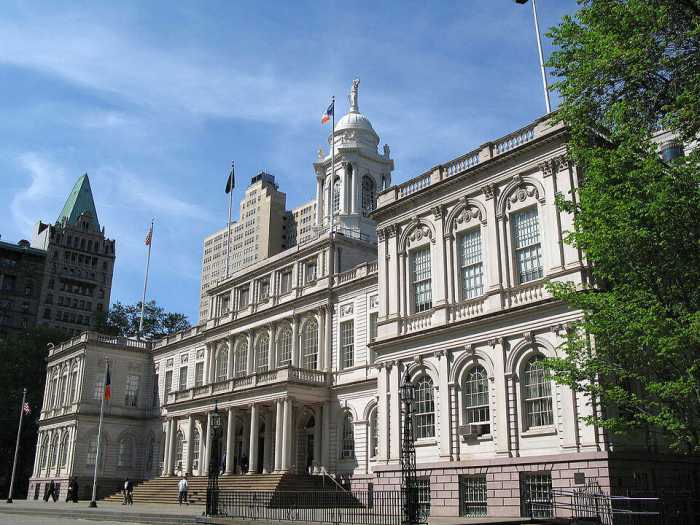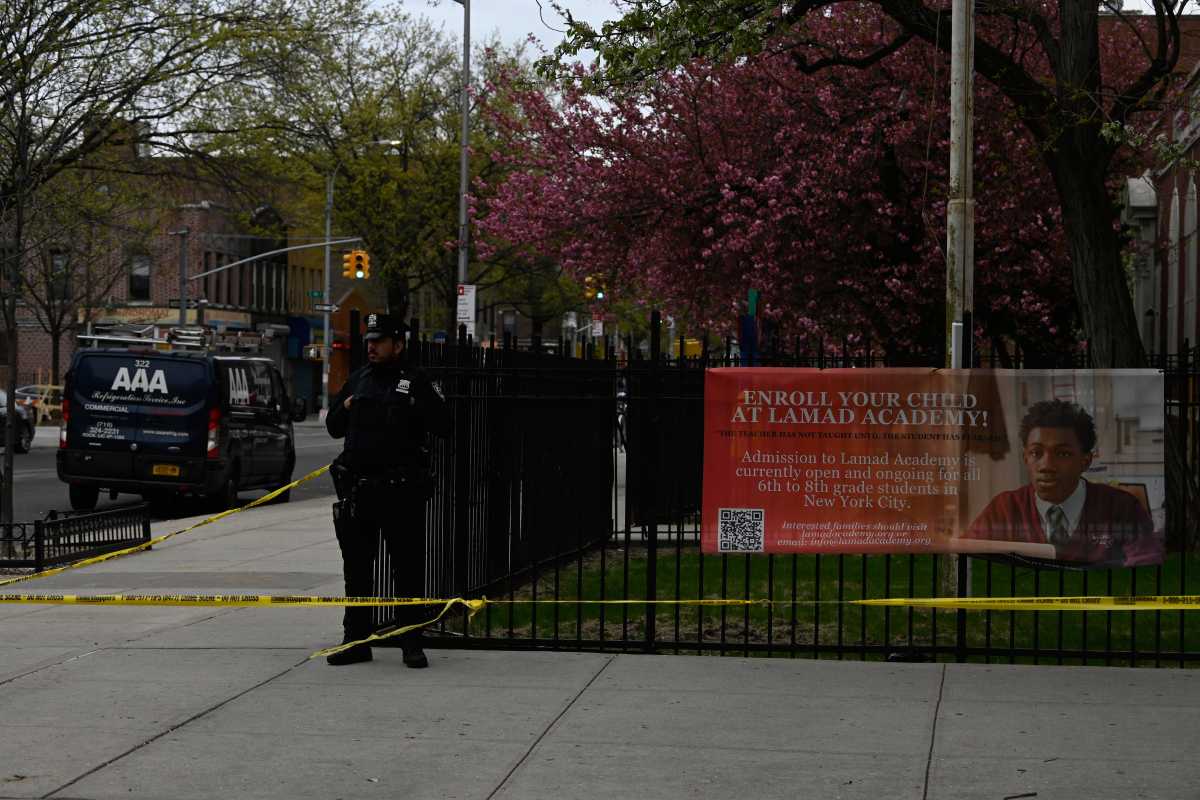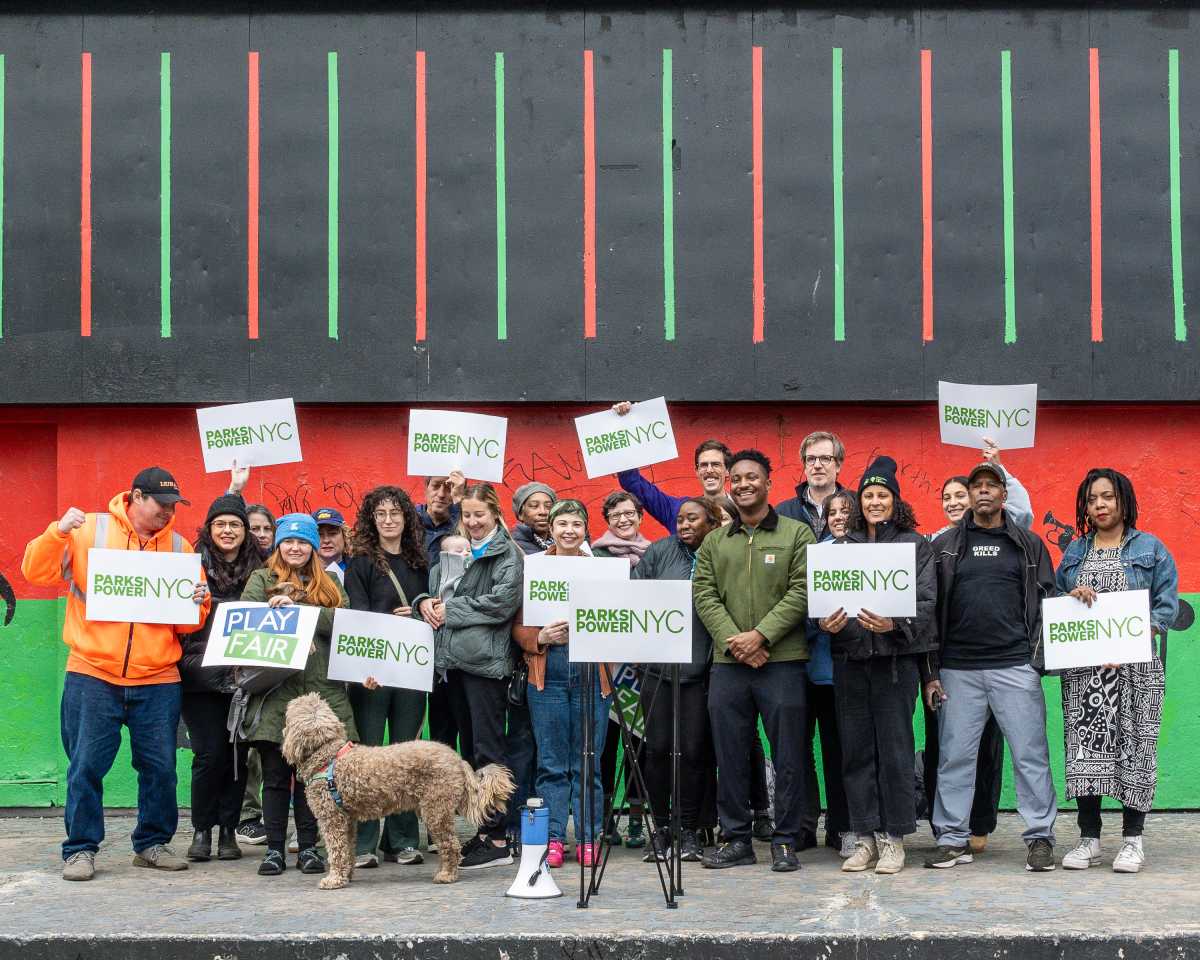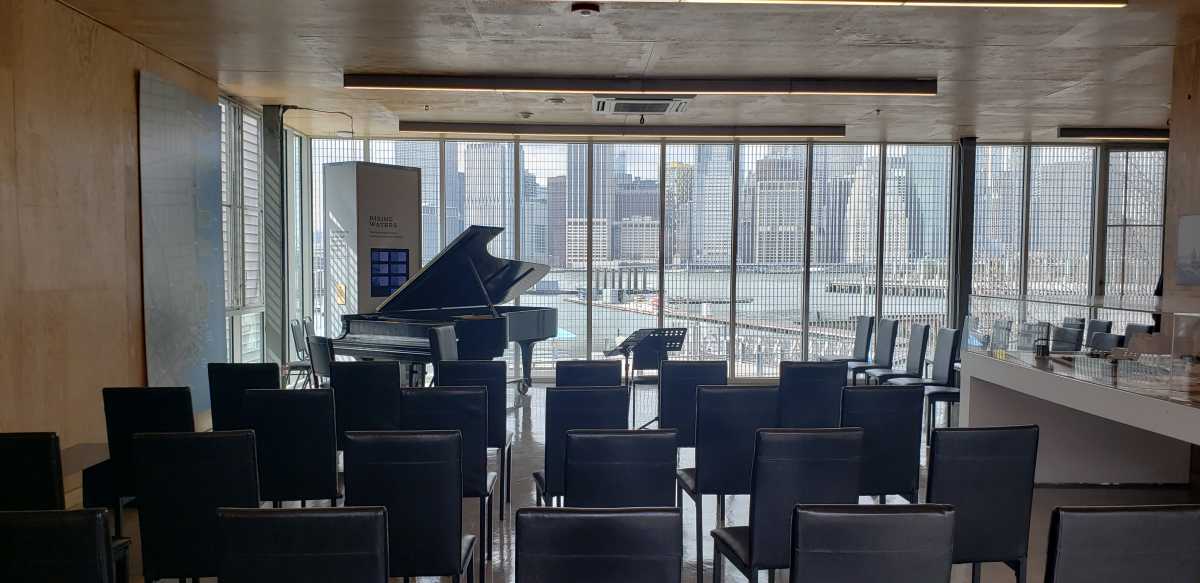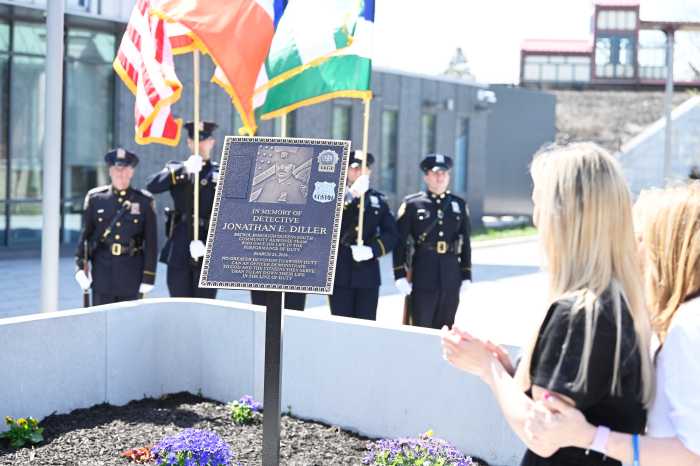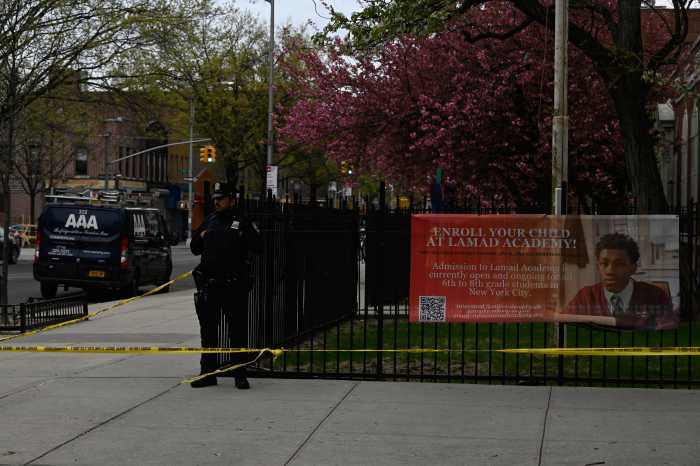The three leading Democratic candidates for New York City mayor in the latest poll on the wide-open contest have one thing in common: policies which put the NYPD front and center of their crime control strategies.
Brooklyn Borough President Eric Adams, a former cop, wants to boost the NYPD’s crime-fighting abilities, as does entrepreneur Andrew Yang. And former Sanitation Commissioner Kathryn Garcia’s anti-gun violence platform includes expanding the NYPD’s Gun Violence Suppression Division.
All three candidates stood at the top of the NY1 News/Ipsos poll of 906 likely Democratic voters taken between May 17-31, with the results released Monday morning. When it comes to first choice on the ranked ballots, Adams had the support of 22% of likely voters, followed by Yang at 16% and Garcia at 15%.
Put together, that represents 53% of likely voters surveyed — a clear majority. Moreover, when all likely voters were asked if they agreed or disagreed with the statement that “The NYPD should put more officers on the street,” a combined 72% of respondents said they either strongly or somewhat agreed.
The poll, released just two weeks before the June 22 primary, seemed to represent a setback for more progressive candidates seeking to further reform the NYPD and reduce its spending power. Those candidates include the embattled City Comptroller Scott Stringer (the first choice of 10% of those surveyed), civil rights attorney Maya Wiley (9%) and nonprofit founder Dianne Morales (5%).
If the poll is any indication, the progressives face an uphill climb among an electorate seemingly more concerned with public safety than police reform.
When likely voters were asked to pick up to three of the main problems facing New York City today, the respondents put crime or violence at the top of the list (46%), followed by affordable housing (45%) and COVID-19 (32%). Racial injustice came in fourth at 25%, and police reform was eighth on the list at 18%.
But the one silver lining for the more progressive candidates can be found among likely voters surveyed about their second choice candidates.
In that poll, Stringer leads with 15%, followed by Adams with 14%, Wiley with 12%, Yang at 11% and former U.S. Housing and Urban Development Secretary Shaun Donovan tied with Garcia at 9%.
With no candidate polling above 22% among first-choice voters and 16% of those surveyed still undecided, it figures that the Democratic primary winner will be decided through ranked choice voting.
Voters can pick up to five different candidates on their ballot, in their order of preference; if there’s no majority in the first count, the voters are recounted, with the candidate with the fewest votes at the end of each round eliminated. For eliminated first-choice votes, the subsequent secondary choices on a person’s ballot are then added to the selected candidate’s total. This process continues until one candidate has secured a majority of all votes.
The secondary votes could still provide the progressive candidates with possible paths to victory over their more moderate rivals.
The NY1/Ipsos poll was also taken before several key events that happened over the past week which figure to impact the race — including the fiery June 2 WABC-TV debate, a second sexual harassment allegation against Stringer and Congresswoman Alexandria Ocasio-Cortez’s endorsement of Wiley’s mayoral bid.
The poll has a margin of error among likely voters of +/- 4.5%.
